SUMMARY
This is AI generated summarization, which may have errors. For context, always refer to the full article.
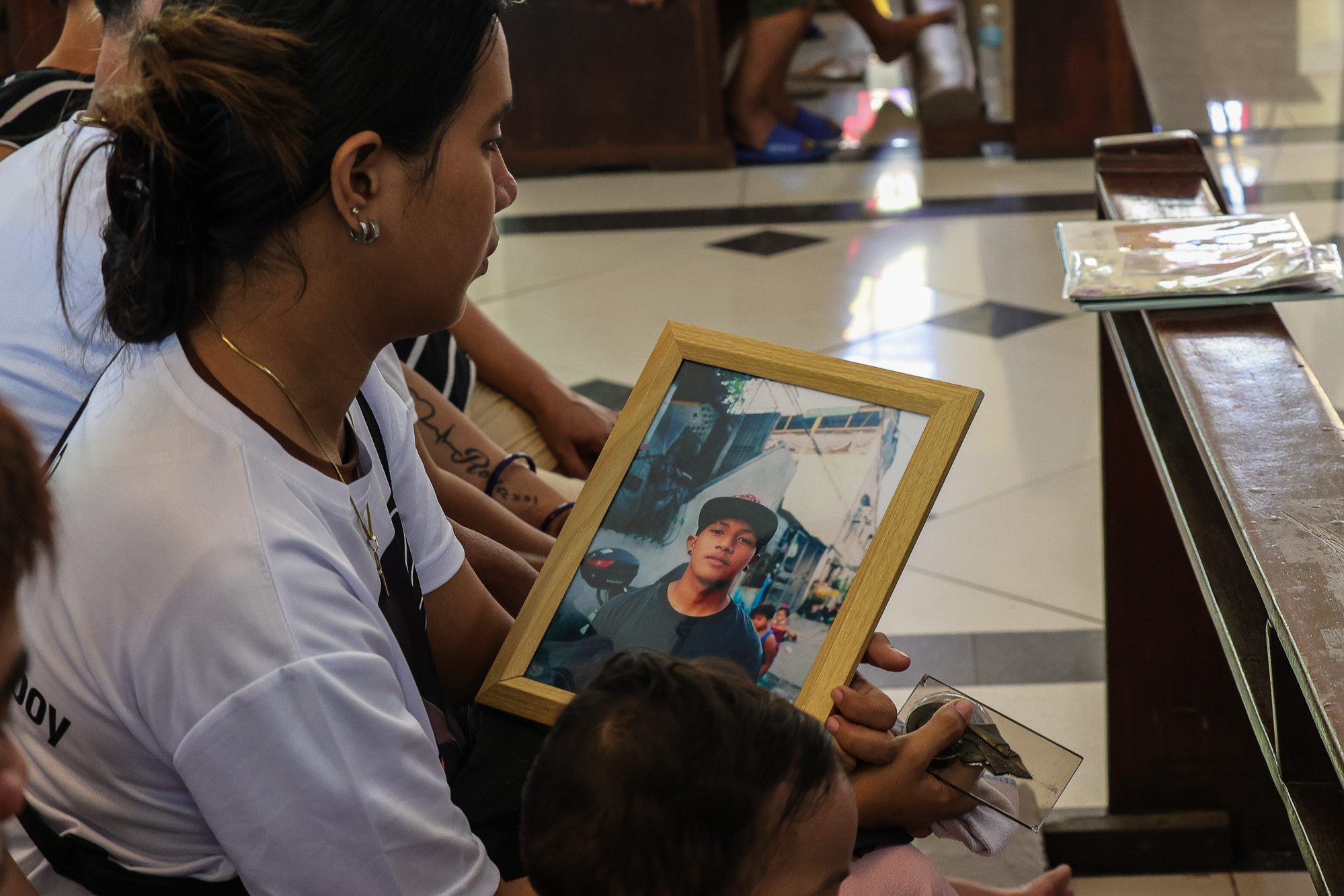
MANILA, Philippines – Over a month since the killing of 17-year-old Jerhode “Jemboy” Baltazar in Navotas City on August 2, the Philippine National Police’s (PNP) National Capital Region Police Office (NCRPO) confirmed early this month that it approved the dismissal from service of the eight cops tagged in the killing.
The NCRPO approved the recommendation to dismiss the policemen, based on the recommendation of the PNP Internal Affairs Service, which probed the teenager’s killing. The cops up for dismissal are as follows:
Grave neglect of duty:
- Police Captains Mark Joseph Carpio and Luisito dela Cruz
Grave irregularity in the performance of duty and conduct unbecoming of a police officer:
- Police Executive Master Sergeant Roberto Balais Jr.
- Police Staff Sergeants Antonio Bugayong Jr., Gerry Maliban, and Niko Pines Esquilon
- Police Corporal Edmard Jake Blanco
- Patrolman Benedict Mangada
On August 2, cops killed Jemboy, while the teenager and his friend were cleaning their fishing boat in a river near their home in Navotas City. The 17-year-old sustained gunshot wounds in the head and hand, and fell into the river after he was shot.
Forensic pathologist Dr. Raquel Fortun, who examined Jemboy’s remains, said the teen died of brain injuries, with drowning as a contributing factor.
Due to their involvement in the killing, Balais, Blanco, Bugayong, Esquilon, Maliban, and Mangada were slapped with complaints over reckless imprudence resulting in homicide. Shortly after, Jemboy’s family also filed a murder complaint against 19 cops, including the eight who were ordered dismissed.
But why did the NCRPO recommend their dismissal?

Against the PNP manual
A copy of the PNP’s decision on the eight cops obtained by Rappler showed the national police’s explanation for ordering the cops’ dismissal. Based on the resolution, the PNP found substantial evidence to hold the eight cops administratively liable for the teenager’s death.
In resolving the case against Balais, Blanco, Bugayong, Esquilon, Maliban, and Mangada, the PNP cited rule 8.1 in the PNP manual, which discusses the use of firearms during police operations.
- Under the rule, the use of a firearm during police operations is only justified if “the offender poses imminent danger of causing death or injury to the police officer or other persons. The use of firearm is also justified under the doctrines of self-defense, defense of a relative, and defense of a stranger.”
- Applying the police rule in the operation that killed Jemboy, the use of firearms by the six cops “was evidently not justified,” the PNP found. The police said there was no indication that Jemboy and his friend, Sonny Boy – or even Reynaldo Bolivar, the original subject of the operation – posed a real threat or demonstrated unlawful aggression towards the cops.
- According to the PNP, the police respondents failed to show “such amount of peril as described on their person or any of the personalities present at the time of the incident to warrant the use of firearm.”
- What was only established on the record is the fact that the six fired their guns toward the water, which resulted in Jemboy’s death. The PNP said this fact was substantiated by their own supervisors, Carpio and Dela Cruz, in their sworn statements.
- The six cops argued that they were entitled to a presumption of regularity – meaning they performed the act “in the context of an existing rule of law or statute authorizing the performance of an act or duty or prescribing a procedure in the performance thereof.” However, this defense does not apply when there are clear and solid findings that the officers did not perform their duties with regularity.
- “As stated, the respondent PNCOS (police non-commissioned officers) unjustly used their firearms which caused the death of an innocent person. Even assuming that respondents merely fired warning shots to make their presence known and/or to cover their colleague who is exposed to possible line of fire as they alleged, the use of warning shot has long been prohibited under 2.11, Section 2-5, Chapter 2, of the PNP Police Operational Procedure (POP) Manual,” the resolution read.
- The PNP also noted that there was no effort on the part of the six police to look for Jemboy in the river to assist him for medical attention. The national police mentioned Dr. Fortun’s findings that drowning was a contributing factor to Jemboy’s death.
- “Unfortunately, these lapses or irregularity on the part of the respondent PNCOS caused a life. A life which should have been saved and preserved should the operation be not riddled with lapses so grave to the point that these police operatives look dumb or playing dumb to try to evade liability…Therefore, they are indeed liable for Grave Irregularity in the Performance of Duty,” the resolution noted.
- The six cops were also found guilty of conduct unbecoming of a police officer because the “charge of grave irregularity, disregard of operational rules, and incompetence in the performance of official duties fall within the scope of conduct unbecoming a police officer,” the PNP explained.
The case vs police supervisors
The resolution also resolved the case of grave neglect of duty against Carpio and Dela Cruz.
- The PNP said the “gravity of the neglect of duty” on Carpio and Dela Cruz’s part cannot be discounted. According to the police, the two as police supervisors, should have been in control of their own personnel. It did not also show that the two required the use of body-worn cameras on their personnel.
- At the height of the Jemboy controversy, it was found that the body-worn cameras of the police in the operation were turned off, eliminating potential and additional source of evidence.
- “More importantly, gunshots were indiscriminately discharged by the policemen under their command without regard to operational procedure that shows a clear indication that the two respondent PCOS failed to control their personnel and the operation as a whole,” the resolution added.
- Carpio and Dela Cruz’s claim that they shouted and stopped their personnel from firing was “apparently self-serving,” the PNP said. The police added that the claim of the two men was contrary to the number of gunshots made and heard during the operation.
- “It is likewise indicative that the two respondent PCOS have no control over their men who are firing at will,” the police added.
- The police also pointed out Carpio and Dela Cruz’s argument that they tried to locate Jemboy’s body using a boat. The PNP said it was “a mere afterthought,” adding that this claim was not included in their affidavits, until the supplement filed by Carpio. – Rappler.com
Add a comment
How does this make you feel?
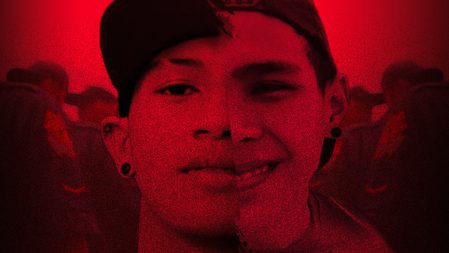


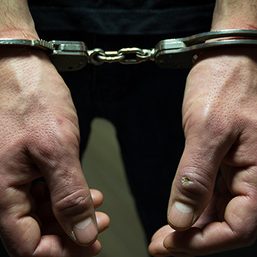


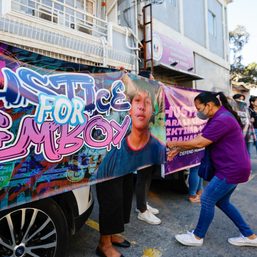
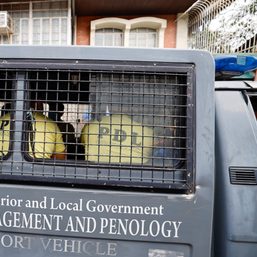
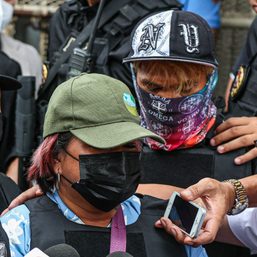

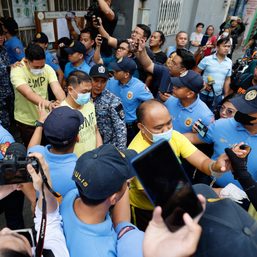
There are no comments yet. Add your comment to start the conversation.